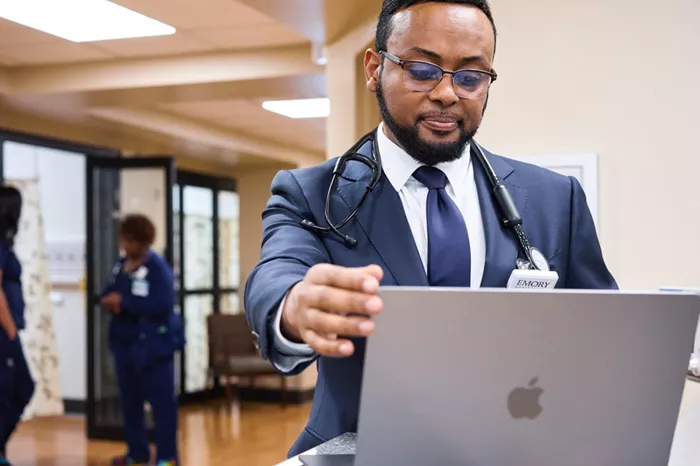In a bold move toward modernizing healthcare delivery, Emory Hillandale Hospital in Lithonia, Georgia, has fully integrated Apple technology into its clinical and administrative operations. The initiative replaces legacy systems with a suite of Apple devices, aiming to streamline workflows, reduce administrative burdens, and enhance patient care.
The transition includes the deployment of Epic Systems, a comprehensive electronic health record (EHR) platform, on Mac computers. Clinicians now rely on Apple hardware—including iPhones, iPads, Apple Watches, and MacBooks—to manage daily tasks with greater efficiency and mobility.
iPhones have become a primary tool for communication among physicians and nurses, each of whom now carries their own device. Real-time alerts, including critical lab results delivered via the Epic Limerick app on Apple Watch, allow for swift clinical decisions that were not feasible under previous systems.
Mounted iPads outside each patient room provide staff with instant access to vital patient information, such as allergies and care directives. Inside, patients are given their own iPads running the MyChart Bedside app, empowering them to review their medical records, monitor care plans, and communicate with their healthcare team. While the devices are primarily for medical use, the possibility of entertainment features such as games or streaming may be explored in the future.
“Healthcare has historically been slow to adopt technology, which I think is such a mistake,” said Dr. Rashida La Barrie, a hospitalist and medical director of utilization review at Emory Hillandale. “Now, I can stay up to date with my patients in a way that wasn’t possible before. We can use technology to provide better and more efficient care, especially now, for our patients.”
Mac computers have replaced all previous desktop and laptop systems within the hospital. Physicians prefer the portability of the MacBook Air, while nursing stations utilize iMacs and Mac minis. This Apple-based setup supports the Epic platform and other clinical applications, enabling care providers to work more flexibly. Staff have reported faster system access, streamlined documentation, and reduced eyestrain.
This shift follows a successful pilot program at Emory Saint Joseph’s Hospital, where clinicians noted improved documentation speeds and a more intuitive user experience. Dr. Vikram Narayan, who led the research on the pilot, reported that integrating Apple products with Epic and ambient documentation tools saved him an average of two hours per day.
Looking ahead, Emory Healthcare and Epic Systems are exploring additional uses of Apple technology, including early applications of the Apple Vision Pro headset in surgical planning and clinical research—signaling a future where advanced tech becomes a cornerstone of patient care.


